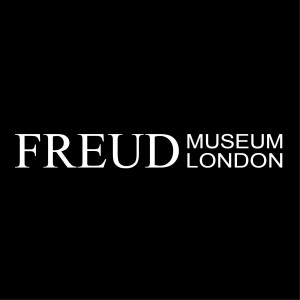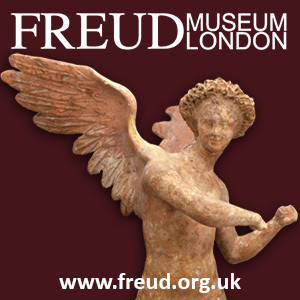Episodes

Thursday Jun 25, 2020
Author’s talk: Alenka Zupančič - What is Sex?
Thursday Jun 25, 2020
Thursday Jun 25, 2020
In What is Sex?, Alenka Zupančič approaches the question of sexuality from a Lacanian perspective, considering it a properly philosophical problem for psychoanalysis.
Drawing on Freud and Lacan, Zupančič argues that sexuality is at the point of a “short circuit” between ontology and epistemology.
Sexuality and knowledge are structured around a fundamental negativity, which unites them at the point of the unconscious. The unconscious (as linked to sexuality) is the concept of an inherent link between being and knowledge in their very negativity.
About the author
Alenka Zupančič is a Slovene philosopher and social theorist. She works as research advisor at the Institute of Philosophy, Scientific Research Center of the Slovene Academy of Sciences. She is also professor at the European Graduate School in Switzerland, and at the Graduate School ZRC SAZU (Ljubljana). She is the author of numerous articles and books on psychoanalysis and philosophy, including Ethics of the Real: Kant and Lacan; The Shortest Shadow: Nietzsche's Philosophy of the Two; Why Psychoanalysis: Three Interventions; The Odd One In: On Comedy; and, most recently, What is Sex?

Sunday May 10, 2020
Sunday May 10, 2020
Starting from the hypothesis that psychosis makes up a structure, with a precise status for the unconscious, Stijn Vanheule explores how, from a Lacanian point of view, the treatment of psychosis is organized. Special attention is paid to the specificity of the psychotic symptom, or elementary phenomenon, and to the way transference characteristically takes shape. Crucial to this approach of treatment is that the psychoanalyst aims at restoring a place for the subject in relation to the Other, which is threatened in episodes of acute psychosis.
Stijn Vanheule is professor of psychoanalysis and chair of the Department of Psychoanalysis and Clinical Consulting at Ghent University (Belgium), and a psychoanalyst in private practice (member of the New Lacanian School for Psychoanalysis and World Association of Psychoanalyse). He is the author of The Subject of Psychosis – A Lacanian Perspective(Palgrave Macmillan, 2011) and Diagnosis and the DSM – A Critical Review (Palgrave Macmillan, 2014), and of multiple papers on Lacanian and Freudian psychoanalysis, psychoanalytic research into psychopathology, and clinical psychodiagnostics.
From the 'Psychosis and Psychoanalysis', a conference organised in collaboration with the Psychosis Therapy Project, a therapy service for people experiencing psychosis.

Sunday Apr 05, 2020
Conference: The Unconscious Today 3
Sunday Apr 05, 2020
Sunday Apr 05, 2020
Session 3: The Freudian Unconscious Revisited

Wednesday Mar 25, 2020
The Unconscious from Freud to Lacan
Wednesday Mar 25, 2020
Wednesday Mar 25, 2020
While the contents of the unconscious might be obscure and perplexing, when Freud spoke about 'the unconscious' he meant something very precise. This talk will look at Freud's 'discovery' of the unconscious, and at his conceptualisation of it. It will also deal with the peculiar logic of symptom formation. From there, it will go on to look at Lacan's notion of the language-like unconscious, showing how this was developed in accordance with Freud's ideas.
Anouchka Grose is a psychoanalyst and writer practising in London. She is a member of the Centre for Freudian Analysis and Research, where she regularly lectures. She is the author of No More Silly Love Songs: a realist’s guide to romance (Portobello, 2010) and Are you Considering Therapy (Karnac, 2011), and is the editor of 'Hysteria Today', a collection of essays to be published by Karnac later this year. She also writes for The Guardian and teaches at Camberwell School of Art.
Part of an exciting season of talks, events and conferences accompanying the exhibition ‘Festival of the Unconscious’, 24 June- 4 October 2015.

Saturday Feb 29, 2020
Lacan: The Unconscious Reinvented
Saturday Feb 29, 2020
Saturday Feb 29, 2020
Colette Soler, joined by Darian Leader
Lacan’s work is often caricatured as arcane, convoluted, ‘theoretical’ and, above all, difficult. But Lacan himself engaged continually with the ideas of his contemporaries and grounded his work in analytic practice. If you have been put off reading Lacan in the past, here is a chance to see what the fuss is about, in a way that relates directly to clinical work and wider issues of the world we live in.
Colette Soler - Psychoanalyst, Founder Member of the Ecole de Psychanalyse des Forums du Champ Lacanien. Her books include What Lacan said about Women (Other Press, 2006) and Lacanian Affects (Routledge, 2014).
Darian Leader - British psychoanalyst and author. He is a founding member of the Centre for Freudian Analysis and Research (CFAR), President of the College of Psychoanalysts, a Trustee of the Freud Museum, and Honorary Visiting Professor in Psychoanalysis at Roehampton University.
This recording may not be further used or cited without the express permission of the speakers.

Friday Jan 31, 2020
Lacan: In Spite of Everything
Friday Jan 31, 2020
Friday Jan 31, 2020

Monday Nov 30, 2015
Conference: The Effectiveness of Symbols
Monday Nov 30, 2015
Monday Nov 30, 2015

Monday Nov 30, 2015
Conference: The Effectiveness of Symbols
Monday Nov 30, 2015
Monday Nov 30, 2015

Monday Nov 30, 2015
Conference: The Effectiveness of Symbols
Monday Nov 30, 2015
Monday Nov 30, 2015

Monday Nov 30, 2015
Conference: The Effectiveness of Symbols
Monday Nov 30, 2015
Monday Nov 30, 2015
Part 2: Henrietta Moore - Exclusion, Unsustainability and the Determinations of the Symbolic
This paper discusses the difficulties of adhering to Lévi-Strauss’s view of the symbolic and his account of the effectiveness of symbols. It uses material from Papua New Guinea and China to explore the relationship between desire and ethics as a means of exploring some contemporary problems in articulating the relationship between the psyche and the social.
Henrietta Moore is the founding Director of the new Institute for Global Prosperity at University College London where she also holds the Chair of Philosophy, Culture and Design. She is an internationally renowned social anthropologist who has written extensively on the interrelation between material and symbolic gender systems, embodiment and subjectivity. She is the author of several books, including The Subject of Anthropology (2007), a cutting-edge analysis of gendered subjectivity and a ground-breaking contribution to the debates between anthropology and psychoanalysis.
Why do symbols have such a powerful influence on human beings?
This question lies at the heart of both psychoanalysis and anthropology. In his seminal paper ‘The Effectiveness of Symbols’, French anthropologist Claude Lévi-Strauss compared the healing practices of shamans and psychoanalysts in terms of the structuring effects of symbol and language on the body.
Lévi-Strauss opened up new ways of thinking about the symbolic dimension of human life, offering a subtle reformulation of the Freudian unconscious and putting forward a theory of symbolic function that continues to resonate within both fields.
This conference brings together eminent speakers from the fields of psychoanalysis and anthropology to reflect on Lévi-Strauss’ paper and its influence, and to discuss symbolic effectiveness in their own research and practice.

Monday Nov 30, 2015
Conference: The Effectiveness of Symbols
Monday Nov 30, 2015
Monday Nov 30, 2015
Part 1: Stefan Marianski - Introduction
By means of introduction, Stefan will present a short synopsis of Levi-Strauss’ paper ‘The Effectiveness of Symbols’, discussing some of its key ideas, its psychoanalytic influences, and how Levi-Strauss’ thought was in turn taken up within psychoanalysis.
Why do symbols have such a powerful influence on human beings?
This question lies at the heart of both psychoanalysis and anthropology. In his seminal paper ‘The Effectiveness of Symbols’, French anthropologist Claude Lévi-Strauss compared the healing practices of shamans and psychoanalysts in terms of the structuring effects of symbol and language on the body.
Lévi-Strauss opened up new ways of thinking about the symbolic dimension of human life, offering a subtle reformulation of the Freudian unconscious and putting forward a theory of symbolic function that continues to resonate within both fields.
This conference brings together eminent speakers from the fields of psychoanalysis and anthropology to reflect on Lévi-Strauss’ paper and its influence, and to discuss symbolic effectiveness in their own research and practice.

Monday Jan 13, 2014
PROJECTIONS: Cinema Hysteria 1
Monday Jan 13, 2014
Monday Jan 13, 2014
Three week evening course with Mary Wild
Basic Instinct, Bitter Moon, Lola Montes, The Seven Year Itch, Belle De Jour, Talk To Her
"What does it mean to be a woman?" "What does a woman want?" An exploration of female desire provides dynamically elusive answers to these eternal questions. Originating in ancient Greek notions of the 'wandering womb', hysteria was Sigmund Freud’s 'splendid child’, defined in his landmark Dora case study. The hysteric’s body is a theatre where irrepressible ghosts of past trauma are disguised in blindness, deafness, seizures and convulsions – she unconsciously shape-shifts into a medium of warped communication, her symptoms do all the talking for her. At the core of hysteria is a twisted fascination with beauty, so closely bound up with femininity that it runs the risk of replacing it. Through her identification with the male gaze, the hysteric becomes a tragic seductress, desiring the desire of the other. Exaggerated womanliness is the theme of this 'masquerade': the ultimate woman might be an imaginary one, a metaphysical alien-goddess, dreamed up by the male animal. "The woman does not exist," so said Lacan, and pandemonium ensued. But becoming a woman implies extraordinary transformation, at the very least.
Hysteria has not disappeared from modern Western world; instead our culture manifests a hidden hysteria but does not recognise it. PROJECTIONS: CINEMA HYSTERIA is a three-part course by MARY WILD examining the central role of hysteria within different film genres (e.g., erotica/romance, horror/melodrama, fantasy/sci-fi). The mystery of femininity will be investigated psychoanalytically via the unconscious connection between the body and language. So rather than the wandering womb, it is in fact the exiled signifier that roams, creeping, searching for a mode of expression among possessed images on the cinema screen.
PROJECTIONS is psychoanalysis for film interpretation. PROJECTIONS empowers film spectators to express subjective associations they consider to be meaningful. Expertise in psychoanalytic theory is not necessary - the only prerequisite is the desire to enter and inhabit the imaginary world of film, which is itself a psychoanalytic act. MARY WILD, a Freudian cinephile from Montreal, is the creator of PROJECTIONS.

